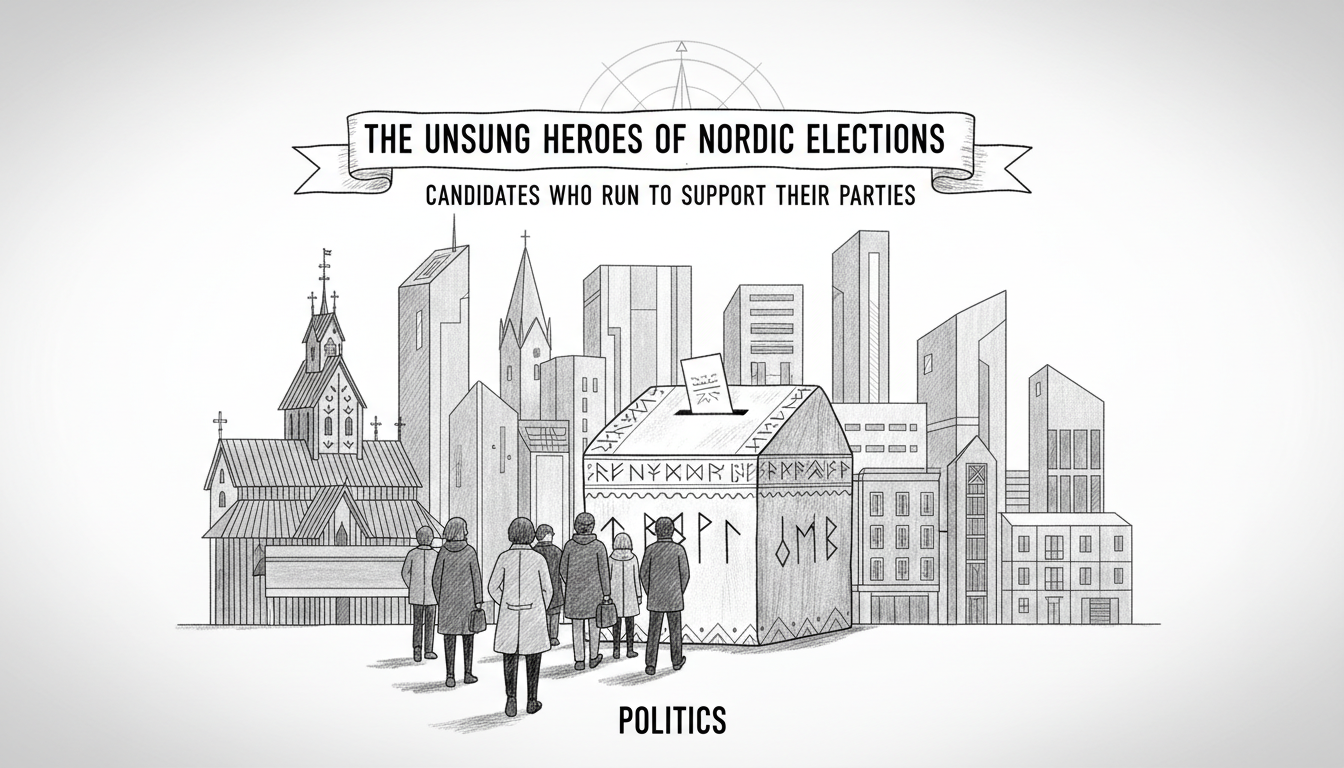While party leaders dominate headlines during election season, hundreds of local candidates across Nordic municipalities run with no expectation of winning seats. These political supporters sacrifice personal ambition to strengthen their parties' overall performance in local elections.
In Rebild Municipality, Pia Bøgelund Ravnholt represents the Conservative party for another election cycle. She received just 32 personal votes during the last municipal election while her party's list collected 3,821 votes across the municipality. I do this to support the party and its political work, Ravnholt explained. I can help bring in votes that transfer to the next candidate on the list if I don't get elected myself. I still believe it's worthwhile to help the party this way.
Michael Levisen Nielsen campaigns similarly for the Red-Green Alliance in Aalborg. This marks his third attempt at municipal office, having received 61 personal votes last time. The most important thing for me is making our party's policies visible to voters, Nielsen said while campaigning at a local supermarket. I've been asking people what they like about rural living and what could improve. I bring those concerns back to my party so we can work effectively on strengthening rural communities.
Jimmy Kruse Sørensen runs for the Socialist People's Party in Hjørring for the fourth consecutive election. He received 29 personal votes in the previous election and acknowledges he likely won't secure a council seat this time either. The number of votes isn't so important, Sørensen noted. But every vote counts, and we run candidates this way for the party's benefit. This approach allows the party's lead candidates in the municipality to receive stronger support.
These candidates represent a fundamental aspect of Nordic political systems where party loyalty often outweighs individual ambition. The list-based proportional representation system common throughout Scandinavia enables parties to field candidates who serve as vote collectors rather than serious contenders for office.
Nordic municipal elections operate differently than many other democracies. Parties present ranked lists of candidates, and votes can transfer between candidates based on preference votes and party calculations. This system allows dedicated party members to contribute meaningfully without expecting personal political advancement.
Ravnholt acknowledged the remote possibility of actually winning election. If I receive the world's best election result and 3,000 personal votes, how would I feel about joining the council? Well, then someone must have seen a light in me, and I would have to take my turn, she reflected.
This practice highlights the collective nature of Nordic politics where individual stardom often takes second place to party cohesion and shared political goals. The system depends on team players who understand their role in the broader political machinery.
Local elections in Denmark and other Nordic countries frequently see numerous candidates who knowingly sacrifice personal political careers for their parties' success. Their participation strengthens party visibility across municipalities and ensures comprehensive geographic representation during campaign periods.

